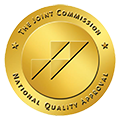False Claims Act Policies
Addendum to Taylor Regional Hospital Code of Conduct
December 2006
False Claims Act Policies
Taylor Regional Hospital is required by law to establish certain policies and provide team members, agents and contractors with information, regarding: (1) the federal False Claims Act and similar state laws, (2) a team member's right to be protected as a whistleblower, and (3)Taylor Regional Hospital policies and procedures for detecting and preventing fraud, waste and abuse. This Addendum, which supplements the TRH Code of Conduct, establishes our policies and contains information required by law under Section 6032 of the Deficit Reduction Act of 2005.Policies and Procedures for Detecting and Preventing Fraud, Waste and Abuse
Taylor Regional Hospital is committed to fully comply with all laws and regulations that apply to health care. Taylor Regional Hospital created the Corporate Compliance Program as an expression of our commitment to ethical behavior. Our Corporate Compliance Program includes the Taylor Regional Hospital policies and procedures, including, but not limited to those that are described in this Addendum, the Code of Conduct, training and education, auditing and monitoring, and opportunities for individuals to raise issues and concerns without fear of retaliation.Whether you are a team member, volunteer, medical staff member, vendor or other business partner with Taylor Regional Hospital, you are reminded to:
Exercise good faith and honesty in all dealings and transactions.
Observe all laws and regulations that govern what we do, including requirements of Medicare, Medicaid and other federal health care programs. These requirements generally include maintaining complete and accurate medical records and submitting only complete and accurate claims for services provided.
Provide accurate and truthful information in all transactions.
Contact one of the following resources available within Taylor Regional Hospital if you have any knowledge or concern regarding a potential false claim:
- Speak with your supervisor or another manager.
- If the manager is not available, or you are not comfortable speaking with him/her, or you believe the matter has not been adequately resolved, contact the Corporate Compliance Officer or the General Counsel.
- If you want to report a concern anonymously, call the Taylor Regional Hospital Corporate Compliance Hotline. The hotline is a confidential service available 24 hours a day, seven days a week. The hotline number is 1-877-888-4805.
Taylor Regional Hospital policy strictly prohibits retaliation, in any form, against any individual making a report, complaint, or inquiry in good faith. Retaliation is subject to discipline, up to and including dismissal from employment or termination of the business relationship with Taylor Regional Hospital.
Federal False Claims Act
What is the False Claims Act?
The federal False Claims Act (31 USC § 3729-33) helps the federal government combat fraud and recover losses resulting from fraud in Federal programs, such as Medicare and Medicaid. Violations of the False Claims Act can include "knowingly": (1) submitting a false claim for payment, (2) making or using a false record or statement to obtain payment for a false claim, (3) conspiring to make a false claim or get one paid, or (4) making or using a false record to avoid payments owed to the U.S. Government. "Knowingly" means that a person: (1) has actual knowledge that the information is false; (2) acts in deliberate ignorance of the truth or falsity of the information; or (3) acts in reckless disregard of the truth or falsity of the information.
Examples of potential false claims include:
Billing for services that were not provided at all
Billing for services that were provided, but were not medically necessary
Submitting inaccurate or misleading claims about the type of services provided
Making false statements to obtain payment for products or services
The False Claims Act contains provisions that allow individuals with original information concerning fraud involving government programs to file a lawsuit on behalf of the government. If the lawsuit is successful, the individual may be eligible to receive a portion of the recoveries received by the government.
Penalties for violating the federal False Claims Act are significant. Financial penalties for submitting a false claim can total as much as three times the amount of the claim, plus fines of $5,500 to $11,000 per claim.
State False Claims Acts
In addition to the federal False Claims Act, many states have false claims acts. Kentucky is expected to pass False Claims Act legislation during the 2007 General Assembly.Rights of Team Members to be Protected as Whistleblowers Under the False Claims Act
The federal False Claims Act protects team members from retaliation if they, in good faith, report fraud. Team members are protected against retaliation such as being fired, demoted, threatened or harassed as a result of filing a False Claims Act lawsuit. A team member who suffers retaliation can sue, and may receive up to twice their back pay, plus interest, reinstatement at the seniority level they would have had if not for the retaliation, and compensation for their costs or damages.Please contact the Corporate Compliance Officer if you have any questions regarding the False Claims Act or the Corporate Compliance Program. Thank you for your ongoing commitment to ethical behavior.






